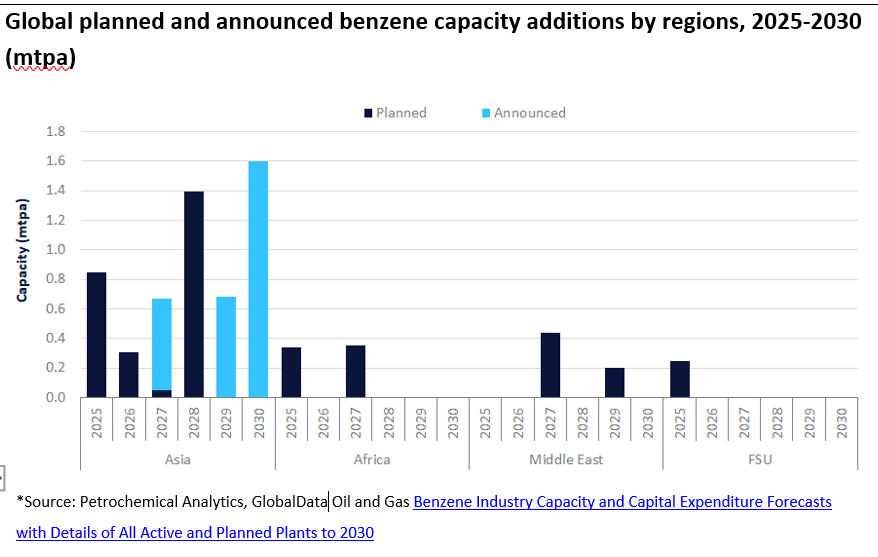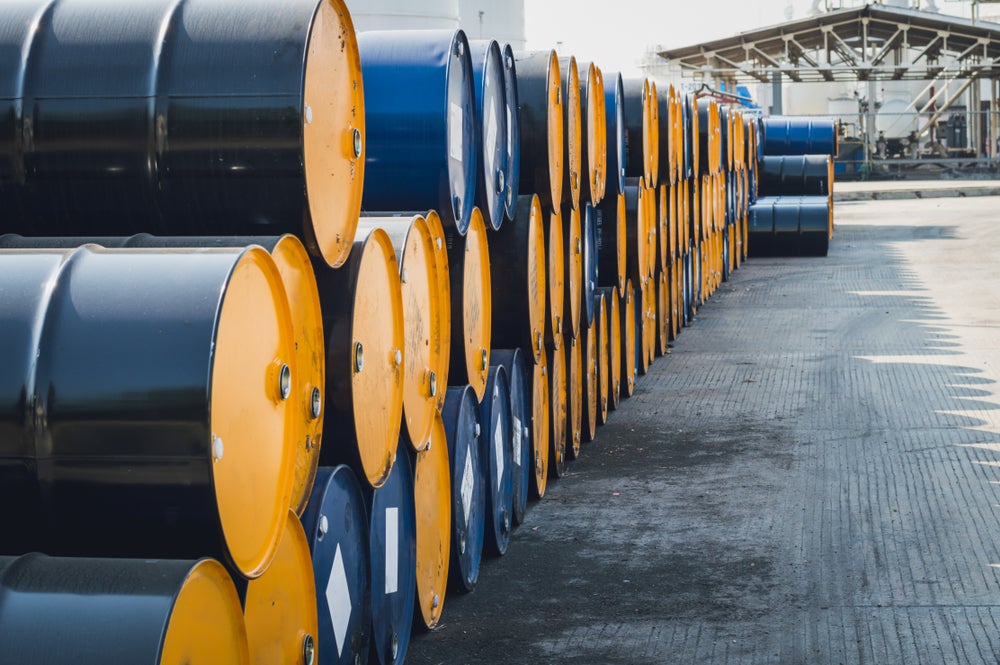Asia is anticipated to be at the forefront of global benzene capacity by 2030. This growth is expected to be driven mainly by the region’s rapid expansion in the automotive and construction sectors.
Asia is expected to add a capacity of 5.45 million tonnes per annum (mtpa) from 14 new build, planned and announced projects, and capacity of 0.05 mtpa from one planned project.
Within Asia, the majority of benzene capacity additions are from upcoming projects in India, with a total capacity of 3.29 mtpa. The highest capacity addition in the region is from Reliance Industries’ Jamnagar benzene plant 3, which is expected to commence operations in 2030 with a capacity of 1.16 mtpa. Reliance Industries Ltd is its operator with a 100% equity stake. Nayara Energy’s Vadinar benzene plant with 0.40 mtpa and Haldia Petrochemicals’ Cuddalore benzene plant with 0.68 mtpa, expected to come online in 2028 and 2029 respectively, are other key locations representing significant capacity additions.

Africa and the Middle East are also expected to witness benzene capacity additions, with 0.69 mtpa and 0.64 mtpa. The capacity additions in Africa are expected from two planned projects in Egypt, while in the Middle East the addition will be from three planned projects in Iran.
The former Soviet Union is also expected to contribute to the benzene industry growth, with a total capacity of 0.25 mtpa from a planned project in Russia. Further details of global benzene capacity and capital expenditure analysis can be found in GlobalData’s new report: Benzene Industry Capacity and Capital Expenditure Forecasts with Details of All Active and Planned Plants to 2030.



